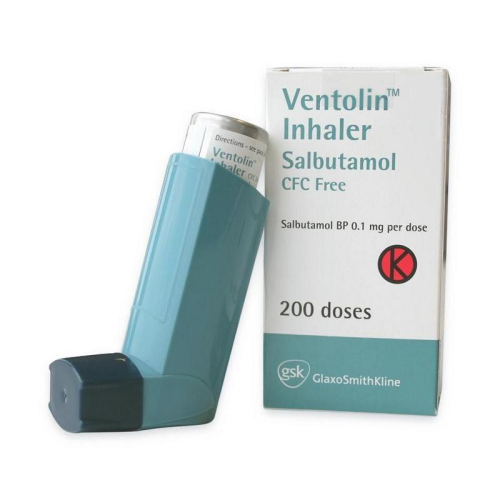ACTIVE HALF-LIFE
6 Hours
CLASSIFICATION
Beta-2-Agonist
DOSAGE
10-20 mg/day
ACNE
No
WATER RETENTION
No
HBR
No
HEPATOTOXICITY
No
AROMATIZATION
No
MANUFACTURER
GSK
WAREHOUSE
International Warehouse 2
SUBSTANCE
Salbutamol
,
Ventolin, commonly referred to as albuterol, is a medication designed to widen the medium and large air passages in the lungs. It is used for managing asthma, including asthma attacks, exercise-induced bronchoconstriction, and chronic obstructive pulmonary disease (COPD). Additionally, it may help treat elevated potassium levels in the blood. Ventolin is most often administered through an inhaler or nebulizer but is also available in pill form and as an intravenous solution. When inhaled, its effects usually begin within 15 minutes and can last from two to six hours.
Frequent side effects include shakiness, headaches, rapid heartbeat, dizziness, and feelings of anxiety. More serious side effects may encompass worsening bronchospasm, irregular heartbeat, and low blood potassium levels. While it can be used during pregnancy and breastfeeding, its safety remains uncertain. Ventolin functions as a short-acting β2 adrenergic receptor agonist, promoting relaxation of the smooth muscles in the airways.
Medical ApplicationsVentolin is primarily indicated for the treatment of bronchospasm (regardless of the cause, such as allergic asthma or exercise-induced) and chronic obstructive pulmonary disease. It is also one of the most widely used medications in rescue inhalers, intended for short-term relief of asthma attacks. As a β2 agonist, salbutamol has applications in obstetrics as well—intravenous salbutamol can serve as a tocolytic agent, relaxing uterine smooth muscle to postpone premature labor. Although it is preferred over alternatives like atosiban and ritodrine, its use has been largely superseded by nifedipine, a calcium channel blocker that is more effective, better tolerated, and taken orally.
Ventolin has also been utilized to manage acute hyperkalemia by facilitating the movement of potassium into cells, thereby reducing blood potassium levels.
Side EffectsThe most common side effects linked to Ventolin include tremors, anxiety, headaches, muscle cramps, dry mouth, and palpitations. Other possible symptoms are tachycardia, arrhythmia, skin flushing, and, although rare, myocardial ischemia, as well as disruptions in sleep and behavior. Notable but infrequent adverse reactions may include allergic responses such as paradoxical bronchospasm, hives, angioedema, low blood pressure, and fainting. Prolonged use or high doses may result in hypokalemia, which is particularly concerning for patients with kidney failure or those taking specific diuretics and xanthine derivatives.
: Keep out of reach of children. For adult use only.
Caution
